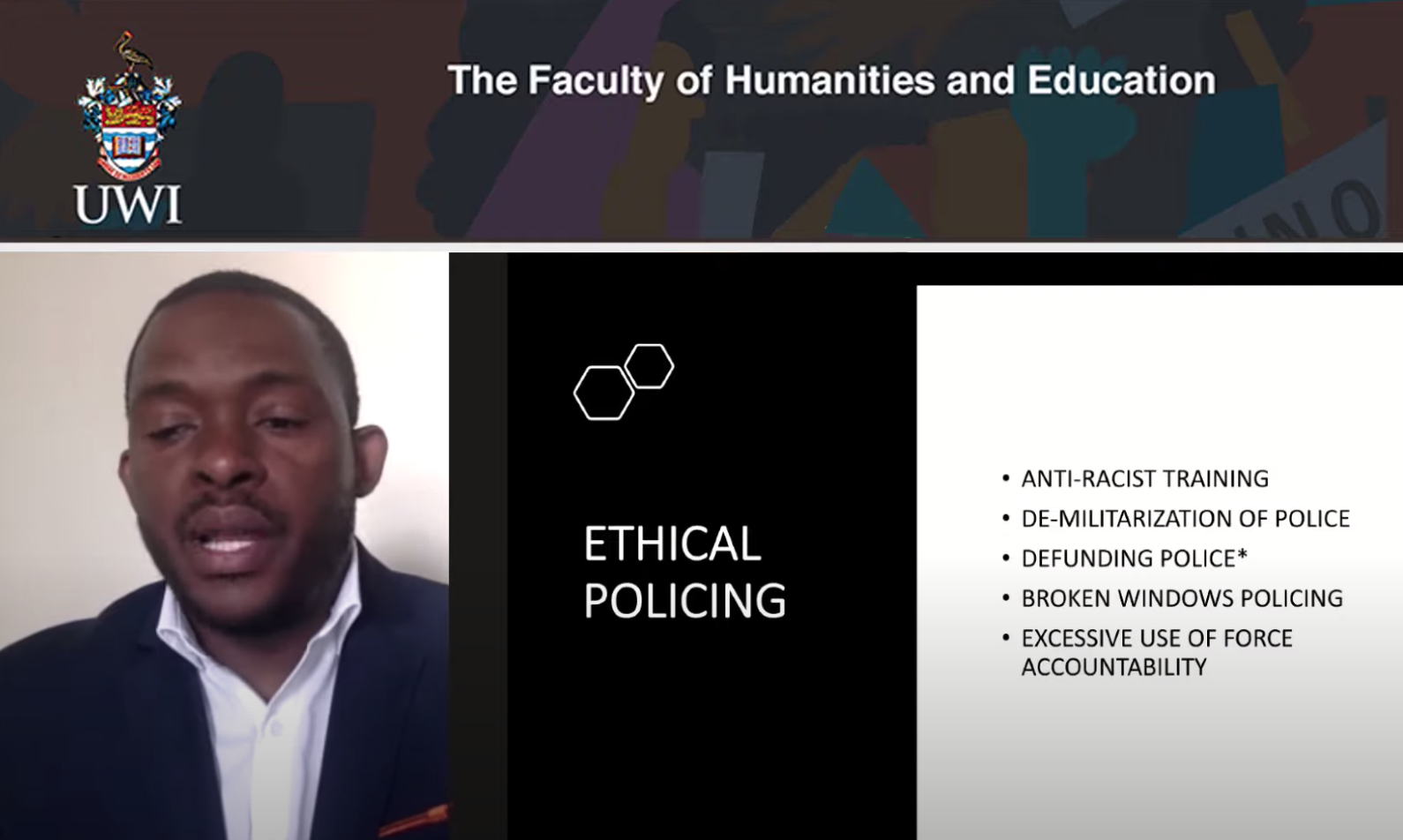Damion Blake, assistant professor in political science and policy studies and Faculty Fellow for Race, Ethnicity and Diversity, recently gave a public virtual lecture on policing and race in America during the University of the West Indies #BlackLivesMatter Virtual Seminar Series.
Damion Blake, associate professor in political science and policy studies, was an invited speaker at the University of the West Indies’ Humanities in Action Virtual Seminar Series under the theme #BlackLivesMatter: The Historical Quest to Respect Black Bodies and Lives.
Blake, who also serves as Elon’s Faculty Fellow for Race, Ethnicity and Diversity, offered a presentation that examined the prospects for an ethical police force and policing within the context of racial disparities in police arrests and their use of excessive and deadly force.

Blake gave a virtual public lecture with a follow up question-and-answer session on the intersections of race, white supremacy, anti-black racism and policing in America. His presentation probed the question of whether an ethical police force and policing is possible within the context of America’s historical and current racial tensions.
Blake argued that an ethical model of policing in America is possible, provided that policemen and women across the country first engage in anti-racist introspection and training. Blake noted the current calls for police reform, such as revising the Broken Windows model of surveillance and criminalization of communities of color and defunding the police through re-investing state and federal funds toward preventative socio-economic initiatives on housing, health care and job opportunities for low-income minority communities.
Blake concluded that the societal and structural racist and biased ideologies that criminalize and de-humanize Black bodies in America must first be ‘un-learned’ and dissolved among the rank and file of men and women in police departments across the country before we can see changes in their use of excessive and deadly force at disproportionate higher rates against Black bodies than the rest of the population.



